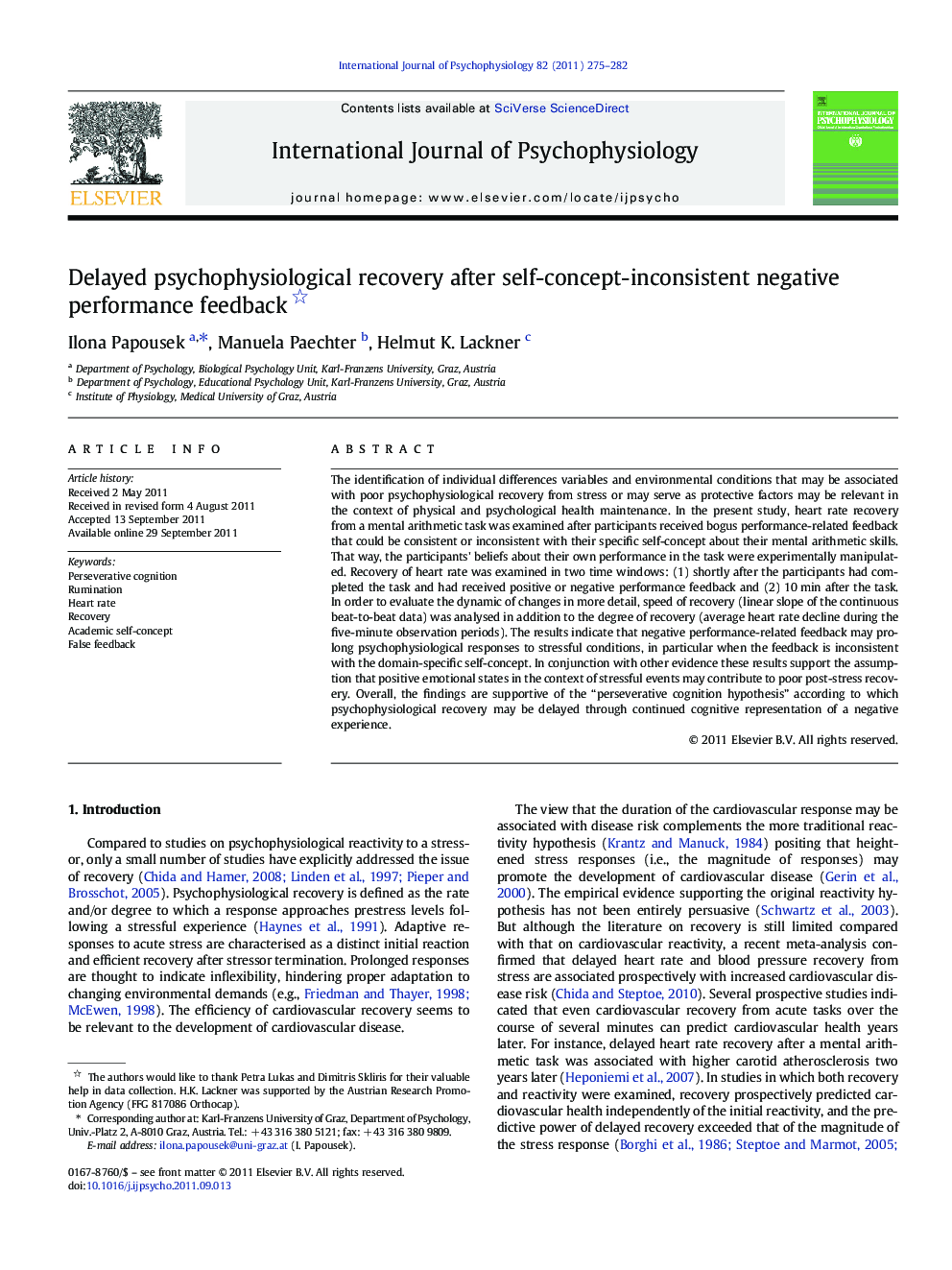| Article ID | Journal | Published Year | Pages | File Type |
|---|---|---|---|---|
| 931391 | International Journal of Psychophysiology | 2011 | 8 Pages |
The identification of individual differences variables and environmental conditions that may be associated with poor psychophysiological recovery from stress or may serve as protective factors may be relevant in the context of physical and psychological health maintenance. In the present study, heart rate recovery from a mental arithmetic task was examined after participants received bogus performance-related feedback that could be consistent or inconsistent with their specific self-concept about their mental arithmetic skills. That way, the participants' beliefs about their own performance in the task were experimentally manipulated. Recovery of heart rate was examined in two time windows: (1) shortly after the participants had completed the task and had received positive or negative performance feedback and (2) 10 min after the task. In order to evaluate the dynamic of changes in more detail, speed of recovery (linear slope of the continuous beat-to-beat data) was analysed in addition to the degree of recovery (average heart rate decline during the five-minute observation periods). The results indicate that negative performance-related feedback may prolong psychophysiological responses to stressful conditions, in particular when the feedback is inconsistent with the domain-specific self-concept. In conjunction with other evidence these results support the assumption that positive emotional states in the context of stressful events may contribute to poor post-stress recovery. Overall, the findings are supportive of the “perseverative cognition hypothesis” according to which psychophysiological recovery may be delayed through continued cognitive representation of a negative experience.
► Participants received false performance feedback after a mental arithmetic task. ► Feedback could be consistent or inconsistent with the domain-specific self-concept. ► Self-concept-inconsistent negative feedback correlated with poor heart rate recovery. ► The findings are supportive of the perseveration cognition hypothesis.
